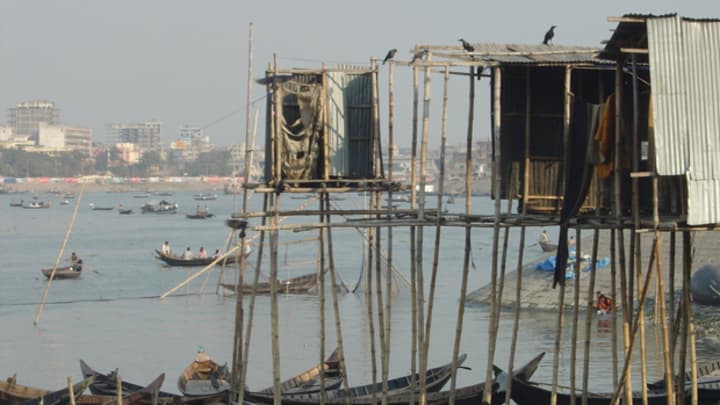
Almost two decades ago, open defecation was the norm in Bangladesh. Today, the situation has improved dramatically, with more and more people having access to toilets and latrines.
But does the process of waste disposal and management stop there?
Not quite, according to Netherlands-based development organization SNV, which is trying to push the next step in sanitation and hygiene issues in the South Asian nation with innovative solutions that can potentially turn human waste into energy and agricultural products, among other possibilities.
This form of fecal sludge management is a pro-poor approach designed not only to address WASH issues in Bangladesh but also the country’s power, livelihood and agricultural needs.
“The project aims to contribute to a change in the way in which fecal sludge is managed by demonstrating city-wide fecal sludge management services,” said SNV’s senior adviser Rajeev Munankami, adding that once a good process is in place, possibilities are practically endless, although “many puzzles” are needed to be solved first.
Sanitation and hygiene issues have, in one way or another, improved Bangladesh’s overall development, with only about 3 percent of the country’s urban population still practicing open defecation compared to about 6 percent two decades ago.
This data however is nationwide, and the situation in urban areas is not the same as in the countryside, where a quarter of the population is still not engaged in modern waste disposal. Munankami noted that the program plans to address this little by little, targeting one city and two towns in the country once it rolls out.
“The purpose is to demonstrate financially viable and sustainable fecal sludge management solutions,” he told Devex. “It will use a pro-poor market-based approach, developing business models for both toilet upgrading and fecal sludge emptying services, and testing innovative technologies as well as introducing health and safety standards.”
Munankami added that the primary goal is to provide solutions on concerns including integrating business models in public service delivery, identifying clear-cut roles for stakeholders in fecal sludge management, integrating technology in development programs and ensuring that these sanitation programs are truly pro-poor.
Partnerships
Munankami argued that WASH efforts in Bangladesh have been progressive, but lacking innovation.
“Most of the sanitation programs addressing MDG targets have focused more on the access to sanitation, and Bangladesh has done fantastic in terms of decreasing open defecation and increasing toilet coverage,” he noted. “Unfortunately, successful examples of innovative alternative sanitation solutions for managing the sludge at scale are limited in [the country] and the region.”
The SNV official added that the lack of investment in sewage for the whole country, coupled with the lack of “attention to safe fecal sludge management services,” has led to the issue of managing waste, “which are now directly or indirectly being disposed in the water bodies without treatment, polluting the environmental health … of the population.”
Partnerships will play a key role in this endeavor, Munankami stressed, not only in terms of capital and technical investment, but also in engaging the local communities making the initiative more empowering and sustainable.
“The project will work closely with communities … to develop service models that are safe, affordable and generate employment and income,” he explained, noting that part of this partnership approach is the aim of changing the behavior of the people toward WASH.
Implemented by SNV, the Bangladeshi government and the local chapter of WaterAid, the program will first be put under study as there are many “pieces of the puzzle yet to be solved” before viable solutions including energy generation could be in place.
Read more development aid news online, and subscribe to The Development Newswire to receive top international development headlines from the world’s leading donors, news sources and opinion leaders — emailed to you FREE every business day.
See more:

